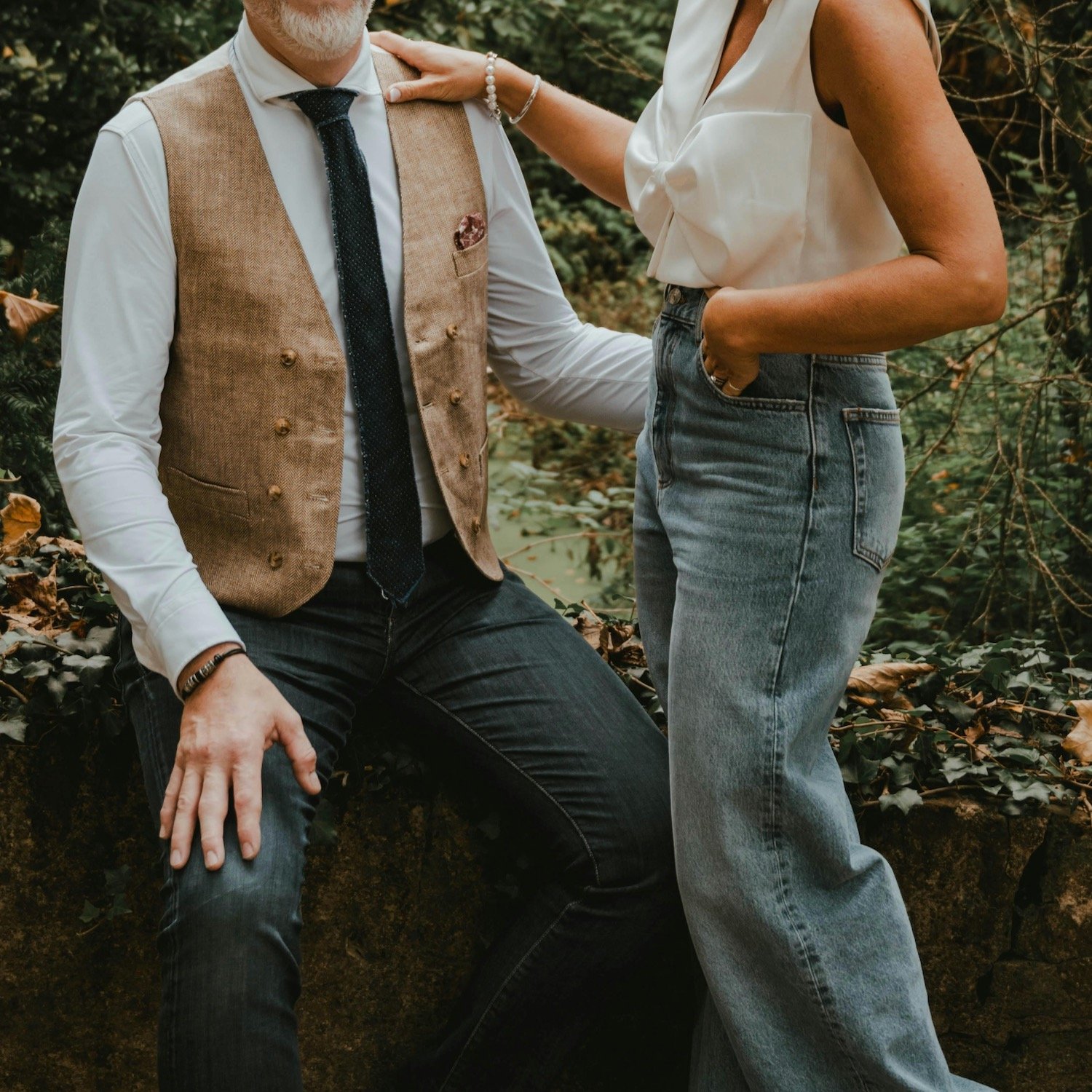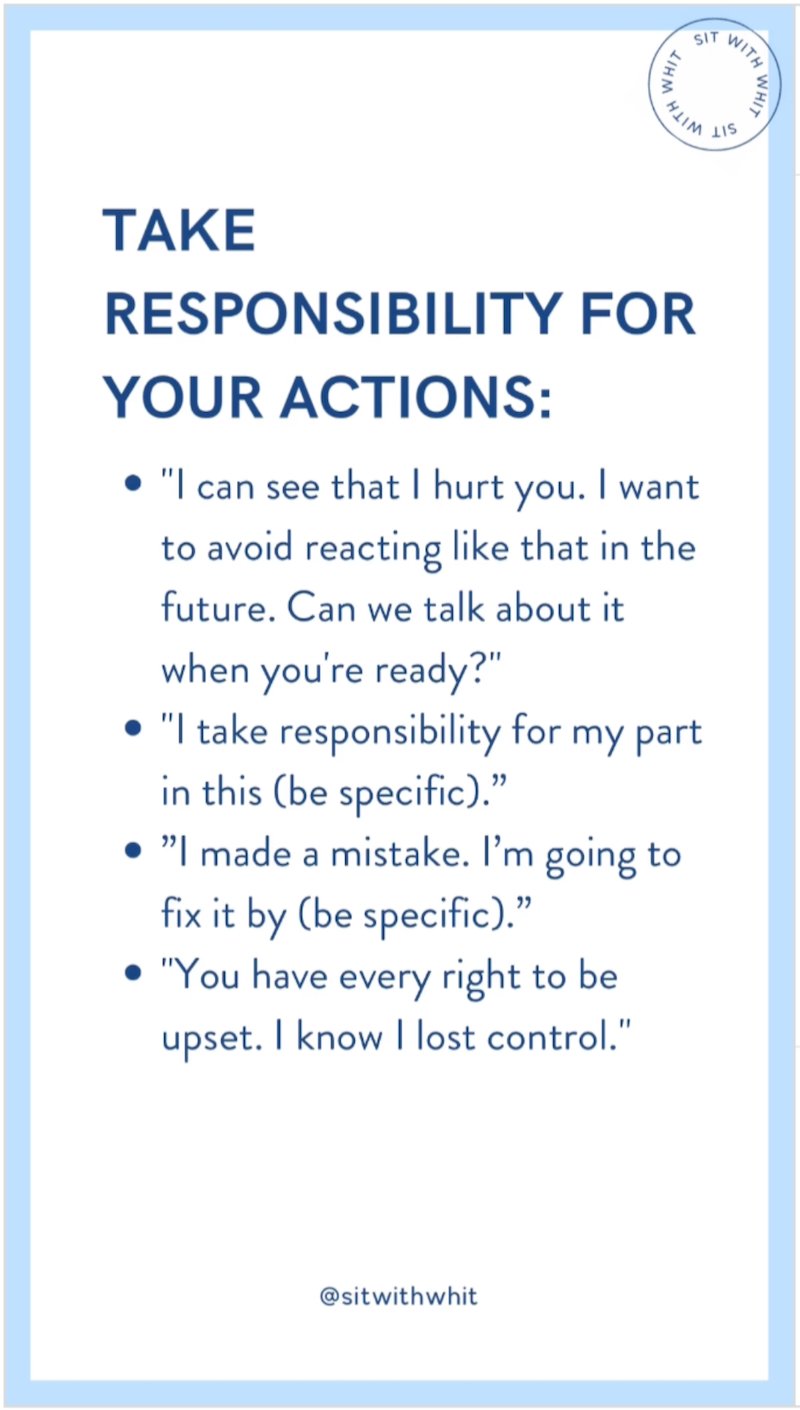The 4 Things You Need To Say Immediately After A Fight
by Carolyn Firestone
Any given day of a relationship can be peppered with tiny tensions. A complaint here. A correction there. A hint of irritability or a sprinkle of passive aggression.
But then there are those times when one partner really messes up. They overreact to something completely irrational. Or say that one thing they know they shouldn’t have.
Many couples are familiar with the earthquake level of frustration that comes when one partner doesn’t fully take responsibility for how they acted. They’re over empty apologies and crave any kind of tangible acknowledgment of what went down and how it made them feel.
We talk a lot about ways to avoid fighting altogether. We’ve even looked at healthier ways to “start a fight.” But rarely do we shine light on the things couples can do after the fact. How does one partner genuinely own up to their mistakes and repair following a conflict?
To answer this question, we spoke to therapist Whitney Goodman, LMFT, who shared the four most crucial (and SPECIFIC) things people should say to make up after a fight.
According to Goodman, hard as it can be to take ownership of one’s part in those heated moments, it’s also “one of the most important skills we need to develop within a relationship.”
So, to start honing that skill, here are those four statements:
Statement 1: “I can see that I hurt you. I want to avoid reacting like that in the future. Can we talk about it when you’re ready?”
Why these words matter:
“You are taking responsibility, committing to doing better, and giving the person space to move through their own process,” said Goodman. “You’re not rushing them to forgive you or talk when they’re not ready.”
Statement 2: “I take responsibility for my part in this (be specific).”
Why these words matter:
“When you just say, “I’m sorry,” there’s no real recognition of the problem. You need to show the other person that you fully understand,” said Goodman.
Statement 3: “I made a mistake. I’m going to fix it (be specific).”
Why these words matter:
In addition to outwardly acknowledging where you went wrong, you’re offering a path forward that could help resolve the issue in the future. An example of this according to Goodman would be saying, “I didn’t consider you when I was making those plans. I am going to make sure in the future I check in with you and talk about it before I make my plans."
Statement 4: “You have every right to be upset. I know I lost control.”
Why these words matter:
In order to make sure your partner feels like you’re making space for whatever response may have been triggered by your actions Goodman advises, “Ask questions, listen, understand that they are allowed to have their own feelings and reactions.”
Why is it so hard to say these things?
Naturally, most of these statements can be easier read than said in moments when someone feels charged or unwilling to suspend blame.
“People struggle with this a lot in relationships because shame, embarrassment, and guilt may show up when they’re asked to apologize or admit wrongdoing,” said Goodman
Because it’s often a little too easy for couples to see what their partner did wrong rather than reflect on their own behavior, she suggests pressing pause in the moment they notice themselves getting worked up. Her tips to help someone who struggles with this to simmer down are pretty straight-forward and hence, doable:
Learn the signs that you’re becoming heated.
Take a few deep breaths.
Tell the other person when you need a break.
Then come back to the conversation.
Once the person notices themselves feeling calmer, they can reapproach their partner and use one of the above statements to repair.
What about when you still feel like your partner is also at fault?
Obviously, it’s rare that everything that goes awry in the throes of an argument is any one person’s fault. However, it’s still beneficial for both parties to communicate from a first-person point of view.
“It helps to begin your sentences with ‘I’ instead of pointing the finger at the other person,” said Goodman. “Try to focus on how certain actions are impacting you and what is happening in the dynamic, instead of labeling the other person as ‘bad’ or becoming critical of who they are as a person.”
This type of self-focus can diminish tension and stop the cycle of blame and defensiveness.
“When we take responsibility for our part, we show the other person that we’re invested, interested, and committed to learning how to be better,” said Goodman.
It’s a way of being vulnerable and making an apology mean something, which invites the other person to let their guard down and do the same.
carolyn firestone
Carolyn is a freelance writer and editor. Her favorite thing to do is to write about her favorite things, especially when they have even the slightest chance of making someone else’s something (mood, relationship, travel plans, or toiletry kit) a little better. You can find more of her articles here.
This article is for informational purposes only. It is not intended to be used in place of professional advice, medical treatment, or professional care in any way. This article is not intended to be and should not be a substitute for professional care, advice or treatment. Please consult with your physician or healthcare provider before changing any health regimen. This article is not intended to diagnose, treat, or prevent disease of any kind. Read our Terms & Conditions and Privacy Policy.









